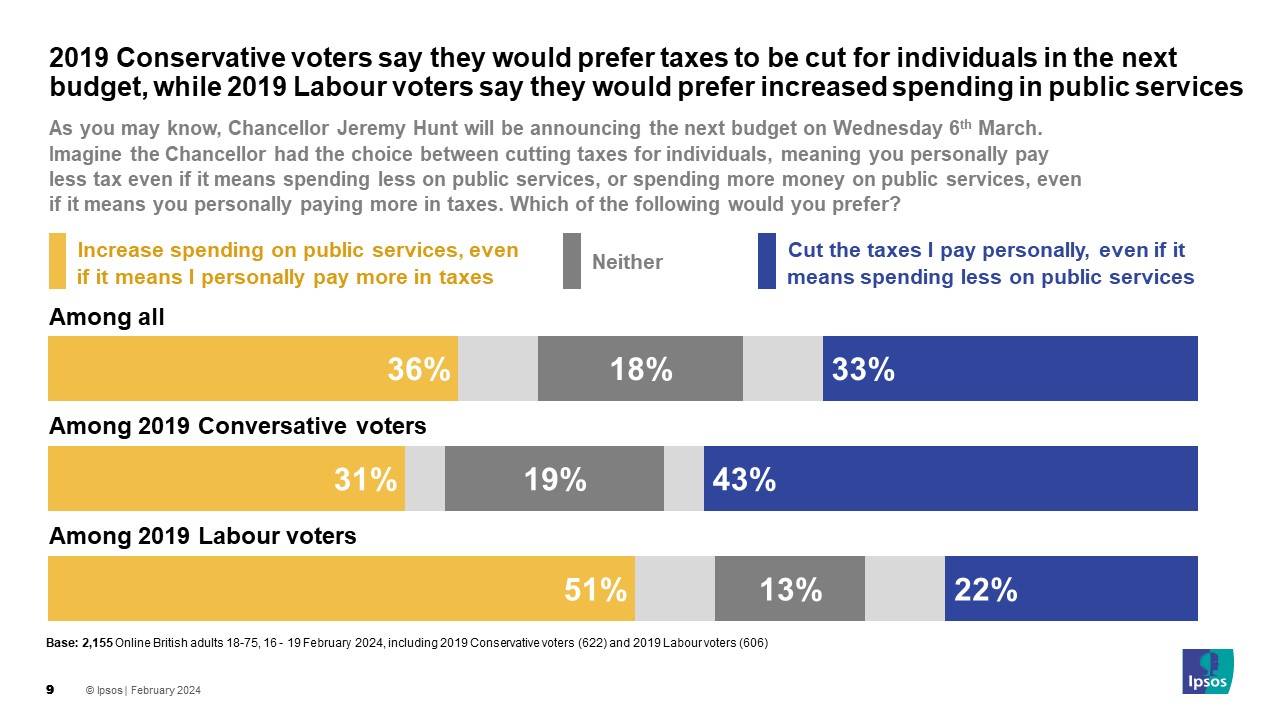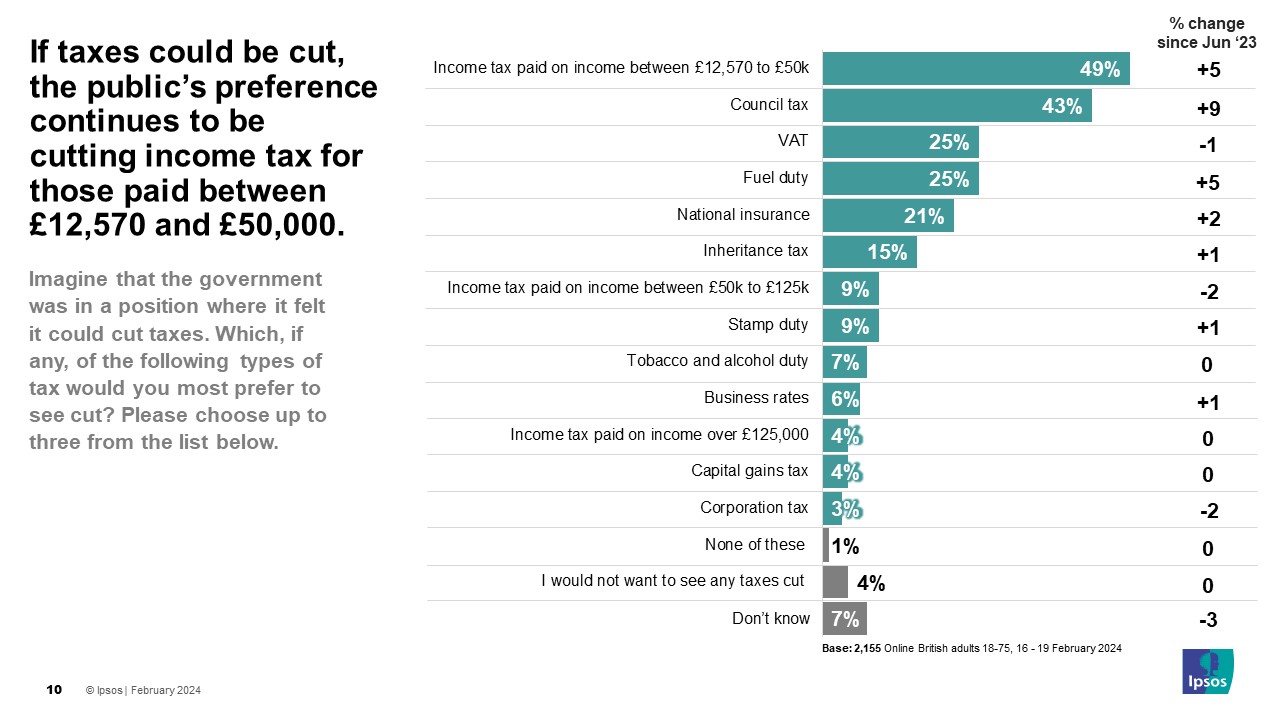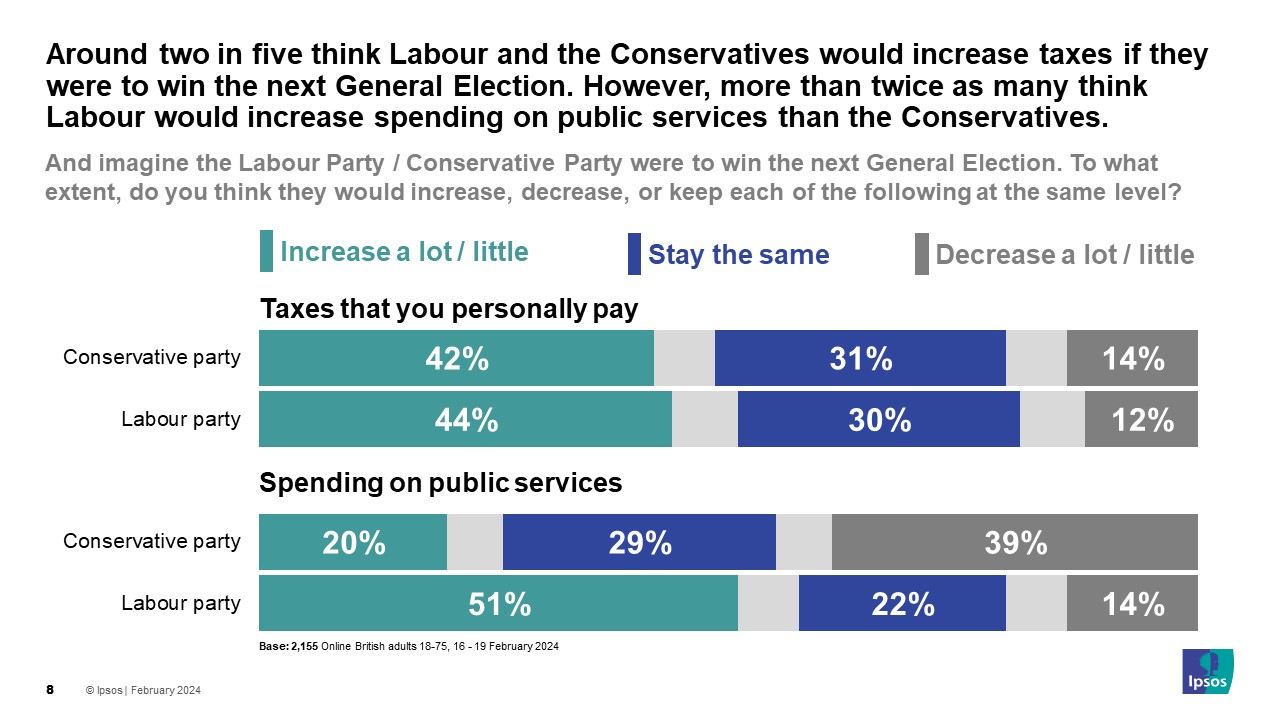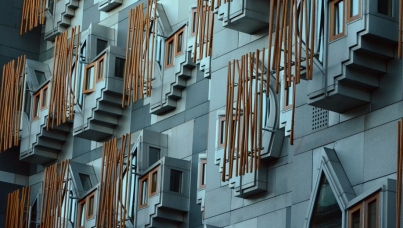Public split on prioritising tax cuts versus more money for public services
- If tax cuts possible, public prioritise tax cuts for lower income households and cutting Council Tax over National Insurance (in 5th place).
- More than four in ten expect taxes to increase after the next General Election regardless of who wins – but the public are more likely to expect spending on public services to increase under Labour.
New polling from Ipsos ahead of the budget explores public attitudes to tax cuts and spending on public services.
The public are split when asked to prioritise between either tax cuts and less spending on public services, or more spending on public services but with taxes increasing.. 36% would prefer to increase spending on public services even if they pay more in tax (rising to 51% amongst 2019 Labour voters), compared to 33% wanting to prioritise cutting the taxes they pay personally, even if it means spending less on public services (rising to 43% amongst 2019 Conservative voters).

When asked to imagine that the government was in a position where it felt it could cut taxes, the two the public prioritise to cut are income tax for lower income households (49%) and Council tax (43%). National insurance ranks in 5th place (21%) behind VAT and fuel duty (both 25%). 2019 Labour voters (26%) are more likely than 2019 Conservative voters (18%) to prioritise a cut to National Insurance, though both groups prioritise other kinds of tax cut overall.

In terms of future expectations, around 4 in 10 expect the taxes to increase regardless of whether the Conservatives (42%) or Labour (44%) win the next General Election. However, the public are much more likely to expect spending on public services to increase a little or a lot if Labour win (51%) than if the Conservatives do (20%).

Elsewhere in the poll:
- 78% consider the state of the British economy to be ‘poor’.
- When asked what they judge the state of the economy on the top two factors mentioned by the public are the level of inflation / whether prices are going up (62%) and interest rates (50%). 40% expect the level of inflation / prices to get worse in the next six months and 17% expect this to get better. 29% expect interest rates to get worse in that time and 19% expect them to get better (though around half do not have an opinion either way or say they don’t know).
- Most blamed factors for the economy being in a poor state include the impact of the COVID-19 pandemic (58%), Britain leaving the European Union (51%), decisions made by former Prime Minister Liz Truss and former Chancellor Kwasi Kwarteng (51%) and the Conservative Party’s economic policies in government over the past 14 years (51%). The impact of Russian invasion of Ukraine is blamed by 47%.
- Overall, 33% trust Labour most to manage the economy and 21% trust the Conservatives most. However, 37% trust neither.
Ipsos Director of Politics, Keiran Pedley, said of the findings:
Assessing the level of public support for tax cuts versus increases in spending on public services is a complex issue as it often depends on how the choice is framed. The Conservatives may well feel tax cuts are the one remaining lever they can pull for voters concerned about the cost of living. However, they will also be mindful that there is strong public concern about the state of public services too and the need to convince voters that any tax cuts do not come at their expense.
Technical note
Ipsos interviewed a representative quota sample of 2,155 adults aged 18-75 in Great Britain. Interviews took place on the online Omnibus 16-19 February 2024. Data has been weighted to the known offline population proportions. All polls are subject to a wide range of potential sources of error.






